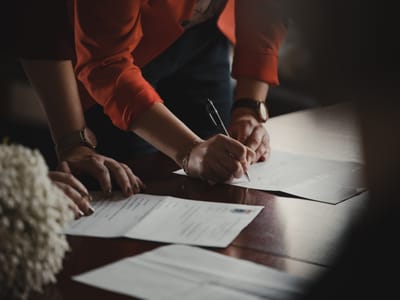Notary Public & Document Legalisation Info and articles
Informative articles regarding the role and function of Notaries Public & Document Legalisation Services in South-Africa
Signature of Affidavits, Contracts, Forms and Documents before Notary
Read MoreApostille certificate service South-Africa Louwrens Koen Attorneys specialise in obtaining Apostille Certificates for all original South-African public, company, commercial and educational documents. Apostille is a French word (pronounced "ah-poh-steel"), meaning a certificate issued by a government of a country, authenticating the signature and or seal of a public official on a public document issued by that country, and intended for use in a foreign country. South-African public, company, commercial or educational documents, including documents witnessed, certified and sealed by a South-African Notary Public, when affixed or attached with an Apostille Certificate issued by the South-African Government, will automatically be accepted for legal use in foreign countries signatories to the Hague Convention. Apostille Certificates are restricted in their use to those countries which are signatories to The Hague Convention otherwise a full embassy or consulate legalisation procedure is necessary.
Read MoreEmbassy Document Legalisation. List of Embassies we work with. Legalising documents requires an in-depth knowledge of the submission process. Understanding which documents embassies will accept, what additional paperwork is needed, how to make payment, and how best to present documents makes our service invaluable to many customers. Using a professional document attestation service saves bome and money by streamlining the handling of documents. We work with many of the embassies, high commissions and consular departments in Pretoria, South Africa. You will find a list below of the services we offer. Inclusive Service!
Read MoreIn most cases, your South African public document needs first to be authenticated by the South African Government before acceptance for legalisation by an Embassy or Consulate, and this is achieved by the issue of an Authentication Certificate stamped or attached to it.
Read MoreWhat documents can be Notarised? There are many different types of documents that can be notarised. We recommend all original documentation be sent to us by either a tracked Courier Service or via POSTNET. When we return your fully notarised documents we will also adhere to this policy. We always obtain a tracking reference, but we cannot be held responsible if a tracked document goes astray. We do charge a small fee for arranging Couriers. Should you wish to us arrange a Courier for the return of Notarised documentation and legalised documents please advise us accordingly.
Read MoreDocuments we regularly notarise or legalise.
Read MoreNotary Service near me. A Notary, also known as a Notary Public, is different to an Attorney, Notaries are practising Attorneys with a further qualification admitted by the High Court, and one of their many roles is to verify legal documents. Many documents do need to be signed in the presence of a Notary including but not limited to a Power of Attorney.
Read MoreA notarial certification is amongst the highest level of certification you can receive from a lawyer or public official. This is partly due to the additional training and expertise required of notaries. When a notarised document is received abroad, it can reassure the recipient that the correct authentication has been carried out. For most transactions concerning South Africa, a notarial certification is not required, and a commissioner for oaths certification will be fine instead. We can provide commissioner for oaths certifications in certain circumstances on request.
Read MoreConsular Legalisation, also known as attestation, is the process of authenticating a document at the Embassy/High Commission of the country where a document is going to be used. Legalisation is carried out by the consular section of an Embassy or High Commission. This is the third and final stage in the authentication process. The first stage is typically getting the document notarised. The second stage is getting an apostille from DIRCO. The requirements, fees and lead times for consular legalisation vary according to the country. It is common for consulates to distinguish between commercial and personal documents; the fees and requirements will differ according to the document type.
Read MoreDo I need notarisation? Start by checking your document. It may need notarisation first.
Read Morehe process of notarisation consists of three parts – vetting, certifying and record-keeping. Notarisations are also sometimes referred to as “notarial acts.”. Notarisation is the official fraud-deterrent process that assures a document is authentic, can be trusted and that its signature is genuine. It also confirms that its signer acted without duress or intimidation and intended the document’s terms to be in full force and effect.
Read MoreDocument legalisation is the process of authenticating or certifying a document for use in a foreign country. It typically involves the document being stamped or sealed by a government agency or a foreign embassy or consulate in the country where the document was issued.
Read More



